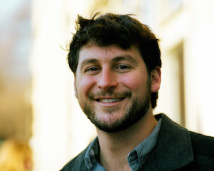posted by Susan Arterian Chang
Since we began telling stories in 2010, Capital Institute’s Field Guide project has focused on small, scalable or replicable, projects and businesses that were organized with great intention from inception to be alternatives to the current business paradigm.
With our latest story of the McCarty Family Farms’ strategic partnership with Dannon Inc., the Field Guide departs from that tradition. We do so in recognition that every player operating in the current paradigm must be invited to participate in, and recognized for its authentic contributions to, the rapid transition we must make to a regenerative economy – whether it be a small, local startup, a mid-scale enterprise, or a global corporation.
The McCarty Family Farms is a conventional dairy farm that, after relocating from a small farm in Pennsylvania to rural Kansas, has grown to a 7000-head dairy large enough to forge a direct relationship with a values-driven processor. According to Ken McCarty, a sixth generation McCarty Farmer, the Dannon relationship has allowed the family to be an equal partner at the price-setting table rather than a price-taker in a commodity market. But just as important, it has allowed the McCartys to focus in that partnership on innovation and longer-term, shared regenerative goals. The family admits it is a work in progress, and that their sustainability bars get raised as they go along, but it is a path to which both the family and Dannon appear to be committed. Read the story of their collaboration, as Ken McCarty tells it, here.
As Narendra Varma, founder of Our Table Cooperative in Sherwood, Oregon, notes in a recent article in Ecotrust’s Edible Portland, “If a company can maintain its internal value system, whatever that might be, and maintain that at scale—if it can take care of people, natural resources and the environment, pay people a living a wage—there’s nothing per se wrong with scale.” This signals a direction in the sustainable agriculture movement away from a narrow focus on size and organics, and more on the underlying values and aspirations of the business.
For example, Agriculture of the Middle, a research initiative convened by Iowa State University’s Leopold Center for Sustainable Agriculture under the direction of Fred Kirschenmann, is exploring values-based alliances between midsized (often family) farms and the networks they supply. These will be alliances that enable the distribution, in volume, of high-quality, food product tailored to a variety of food-network desires. Most critically, the financial rewards reaped along the way will be shared equitably among all contributing parties.
The cutting edge of the sustainable agriculture movement, as it acknowledges the need to engage on a truly systems level, is widening its tent to include not only artisanal/biodynamic/organic producers that supply to farmers markets, farm to table restaurants, and CSAs, but also to welcome larger scale farms that wish to operate more sustainably and the like-minded larger food businesses they supply. The future of sustainable agriculture, like the regenerative economy as a whole, will be characterized by a rich diversity of collaborative relationships, not mechanistic transactional ones between counterparties operating in narrowly defined silos. We see this complex web of interactions as a manifestation of what ecologists call “the edge effect.”
“The benefits of these interactions are often subtle, but profound,” says Capital Institute’s founder John Fullerton. “One must experience the richness and abundance generated through the exchanges that occur at these edges. Working across them is transformative for both the individuals involved, as well as the communities where the exchanges are happening. This is where the vast untapped and unseen potential of regeneration will take place in numerous ‘aha’ moments and subtle shifts, some large, and some very small.”
Ecotrust’s online “matchmaking” platform FoodHub is illustrative of the alchemy of the edge effect, as it brings together more than 5,000 food producers, wholesale buyers, and service providers to communicate and collaborate. “I think it will be incumbent on all of us who care about the food system to reach out and build relationships if we want to drive transformational change in it,” says Amanda Oborne, Vice President of Ecotrust’s Food and Farms Program. “Food Hub is completely production practice neutral, you can be organic or not, large or small, but we bend over backwards to make it transparent and to give people a way to make their own decisions.”
As Amanda notes, “We are all on a journey and we need to support and encourage one another along the way, and to minimize judgmentalism. I think what is more helpful is to acknowledge there is a whole spectrum of shades of green. People and businesses start in one place and evolve, and that journey should be encouraged.”

 RSS Feed
RSS Feed